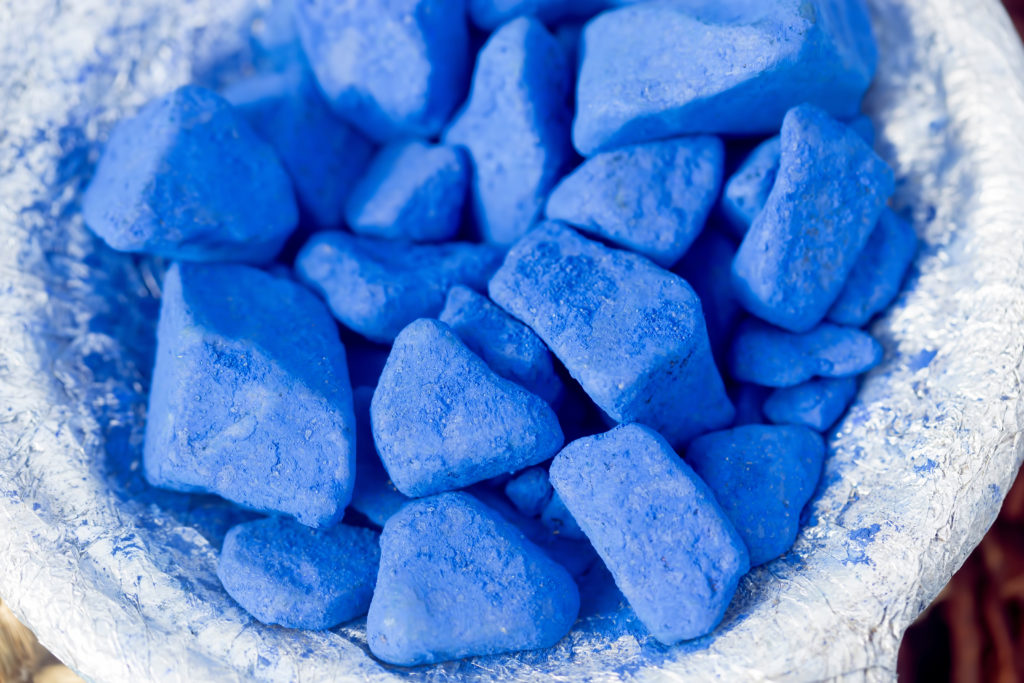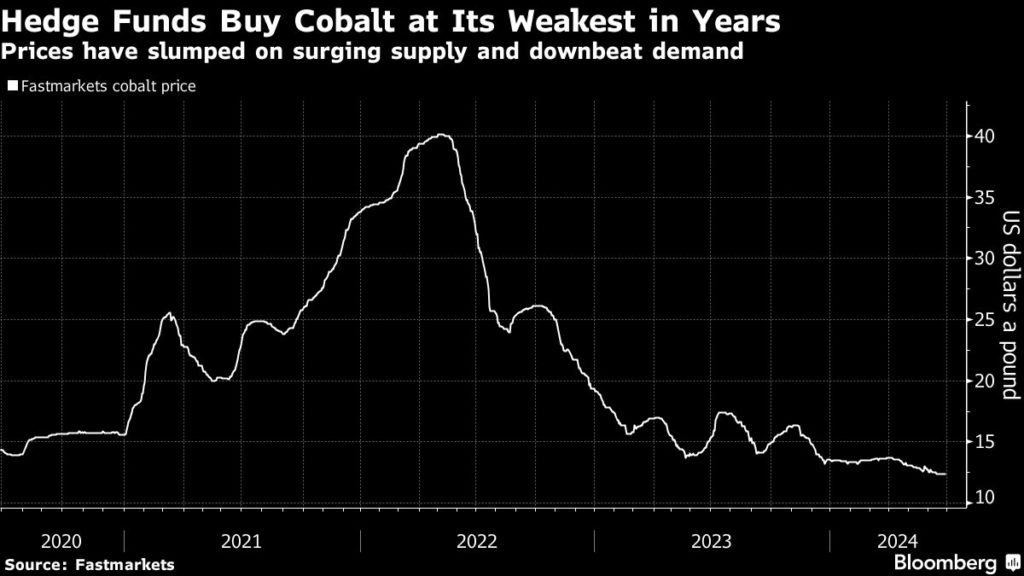Hedge funds are hoarding cobalt amid battery metal slump

Hedge funds including Anchorage Capital Advisors and Squarepoint Capital LLP have been building positions in cobalt by buying up physical material, as tumbling spot prices and a more liquid futures market create new trading opportunities in the battery metal.
Cobalt is a relatively tiny and specialized market compared with commodities like copper or oil, and prices have dropped to the lowest in more than seven years as the market is flooded with production from the Democratic Republic of Congo and Indonesia.
The hedge funds’ moves are the latest sign of financial players getting involved in physical metal trades, as money flows back into commodities while oversupplied metal markets create opportunities to make a profit by buying at cheap spot prices.
It’s also reviving memories from almost a decade ago, when funds including Pala Investments took advantage of weak cobalt prices to buy up piles of metal in a bet on the nascent energy transition. (The bet paid off, as prices soared over the next couple of years.)
At the time, the absence of a liquid futures market meant that buying real-world cobalt was one of the only ways available to bet on rising prices.
Today, the situation looks a little different. Cobalt futures trading has taken off on CME Group’s Comex exchange, creating a way for traders to hedge their physical positions in the newly liquid futures market.
The ballooning surplus has also led to a widening gap between depressed spot prices and higher-priced futures on the Comex, with contracts for delivery in a year’s time having traded as much as 20% higher than spot prices.
The wide discount between spot and futures prices creates opportunities for “cash-and-carry” trades, — if spot prices surge, owners of physical metal would be able to sell their cobalt at a big profit, and even if they don’t, they can lock in a return by selling futures.
Squarepoint has been buying cobalt metal from traders, according to people familiar with the matter, while Anchorage has been buying both cobalt metal and cobalt hydroxide — an intermediate product in the production of cobalt sulphate that goes into EV batteries. Anchorage has also been active in trading on CME, said some of the people, who asked not to be identified as the information is private.
Representatives for Anchorage and Squarepoint declined to comment.

While cash-and-carry trades are commonplace in larger commodities like aluminum and copper, there is an added layer of risk and complexity for traders looking to capture the spread in the cobalt market because the CME contracts are cash settled. That means the funds can’t deliver their cobalt to the exchange when they are ready close out the trade, and would have to find a buyer for the metal in a small and illiquid physical market.
That might not be easy, given that the market is already awash with excess metal. Surging supply and weaker-than-expected sales in the EV sector have contributed to a record surplus in the market this year, and many in the industry are pessimistic about the prospects for a rebound. The rise in popularity of lithium-iron phosphate batteries, which don’t require cobalt, also poses a threat to demand.
One cause for optimism has come from China’s strategic stockpiling agency, which has been mopping up surplus inventories in record volumes this year, in a trend that underscores the metal’s strategic value both in electric vehicles and defense. The US has also made inquiries about buying metal from traders in the past, and is seeking to reinvigorate its own stockpiling program.
Last time around, Pala and other funds sold their cobalt to a listed company called Cobalt 27, which built up the largest private stockpile of the metal and saw its value soar as prices took off, before crashing as new supplies from Congo flooded the market.
(By Yvonne Yue Li, Mark Burton, Jack Farchy and Archie Hunter)
{{ commodity.name }}
{{ post.title }}
{{ post.date }}




Comments